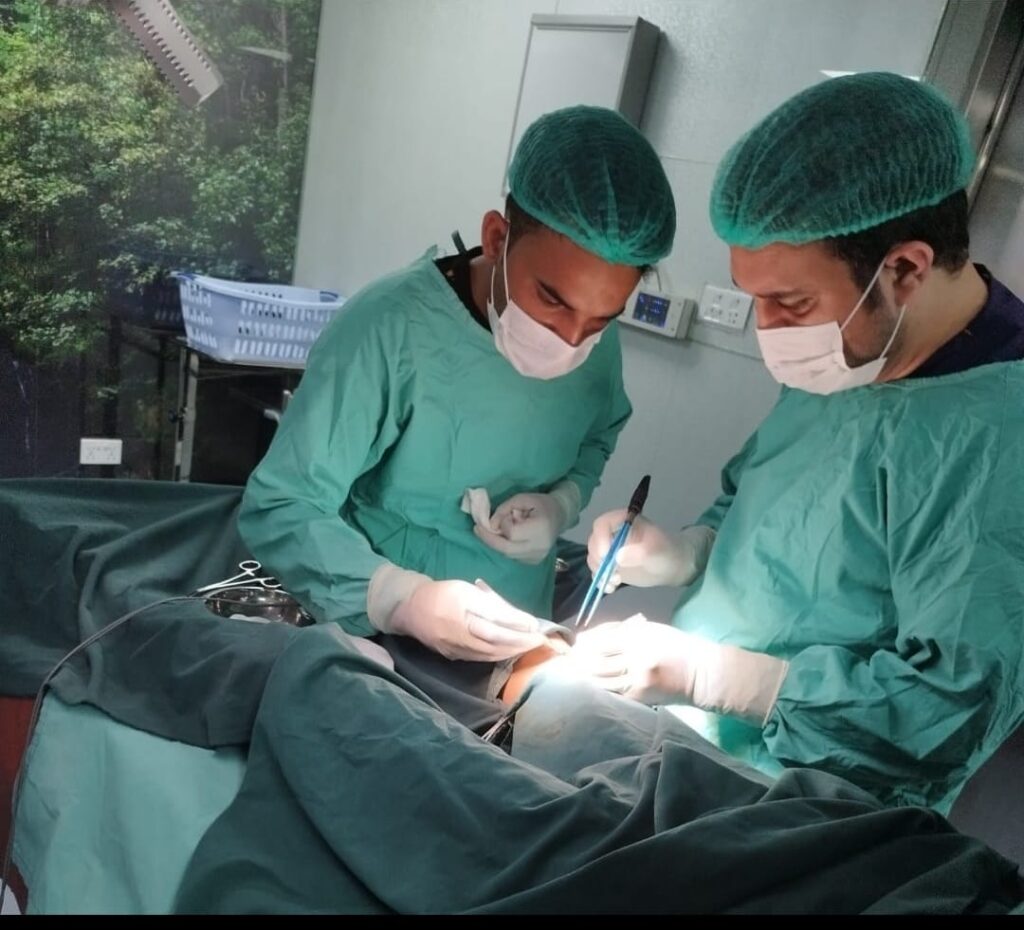- contact@laparoscopyadvice.com
- General Practice Hospital, G-9/2 Islamabad
- Mon - Fri: 10:00 am - 7:00 pm
Visiting Hours
| Mon - Fri: | 8:00 am - 8:00 pm |
| Saturday: | 9:00 am - 6:00 pm |
| Sunday: | 9:00 am - 6:00 pm |
Gallery Posts






| Mon - Fri: | 8:00 am - 8:00 pm |
| Saturday: | 9:00 am - 6:00 pm |
| Sunday: | 9:00 am - 6:00 pm |







Introduction
Pelvic Congestion Syndrome (PCS) is a condition that can cause persistent pelvic pain and discomfort, often affecting the quality of life for those experiencing it. This article aims to provide insights into PCS, exploring its definition, causes, symptoms, and available management strategies. Understanding PCS is crucial for individuals seeking relief and for healthcare providers in offering effective support.
Understanding Pelvic Congestion Syndrome
PCS is a condition characterized by chronic pelvic pain, often attributed to the presence of varicose veins in the pelvic region. These veins, also known as pelvic varices, can cause discomfort and pain due to blood pooling and inadequate blood flow.
How PCS Develops and Its Impact on Pelvic Veins
PCS develops when the valves in pelvic veins fail to function properly, leading to blood accumulating in the veins. This can result in enlarged and engorged veins, contributing to pelvic pain and discomfort.
Common Causes and Risk Factors
Understanding the common causes and risk factors for PCS is essential for both prevention and management.
Gender and Age Considerations in PCS Development
PCS is more prevalent in women, particularly those of childbearing age. Hormonal fluctuations, pregnancy, and childbirth are factors that may contribute to the development of PCS.
Symptoms and Diagnosis
Recognizing the signs and symptoms of PCS is crucial for an accurate diagnosis.



Diagnostic Procedures and Imaging Studies for Confirming PCS
Diagnosing PCS involves a combination of clinical evaluation and imaging studies, such as pelvic ultrasound and venography, to visualize the pelvic veins and assess blood flow.
Treatment Options
Managing PCS includes both conservative and interventional approaches tailored to individual needs.
Importance of Individualized Treatment Plans
Treatment plans may involve lifestyle modifications, medications, or more invasive interventions such as embolization to address the underlying venous issues causing PCS. The approach is individualized based on the severity of symptoms and the impact on daily life.
Lifestyle Modifications
Implementing lifestyle changes can complement medical interventions and alleviate PCS symptoms.
Diet, Exercise, and Other Considerations for Symptom Management
Maintaining a healthy lifestyle through a balanced diet and regular exercise can support overall well-being and potentially ease PCS symptoms. Additionally, avoiding prolonged periods of sitting or standing may help improve blood circulation in the pelvic region.
## **Impact on Quality of Life**
PCS can significantly impact an individual’s quality of life, requiring attention to physical and emotional well-being.
Coping Strategies and Support Systems
Living with PCS involves adopting coping strategies to manage chronic pain and discomfort. Building a strong support system, including healthcare providers, friends, and family, is crucial for emotional well-being.
Frequently Asked Questions (FAQs)
1. Is PCS a common condition?
PCS is considered relatively uncommon, but its prevalence may be underestimated due to varying symptoms and challenges in diagnosis.
2. Can PCS affect fertility?
While PCS itself may not directly impact fertility, the underlying causes or associated conditions may have implications for reproductive health. Consulting with a healthcare provider is advisable for individuals planning to conceive.
3. Is surgery always necessary for treating PCS?
Surgery is not always necessary for PCS treatment. Conservative approaches, lifestyle modifications, and minimally invasive interventions like embolization are often explored before considering surgery.
4. Can PCS symptoms fluctuate over time?
PCS symptoms may vary in intensity and frequency over time. Factors such as hormonal changes, stress, and lifestyle can influence symptom fluctuations.
5. Can PCS be cured completely?
While there is no definitive cure for PCS, effective management strategies can alleviate symptoms and improve quality of life for individuals with this condition.
Conclusion
In conclusion, understanding Pelvic Congestion Syndrome is crucial for individuals seeking relief from chronic pelvic pain and discomfort. By exploring its causes, symptoms, and available management strategies, individuals and healthcare providers can work together to develop personalized approaches to living well with PCS. Encouraging awareness, proactive management, and seeking medical advice are fundamental steps towards a better quality of life for those dealing with Pelvic Congestion Syndrome.
| Mon - Fri: | 9:00 am - 7:00 pm |
| Saturday - Sunday: | Off |
Copyright 2023 Adil's Laparoscopy World | Powered by Dynaamx